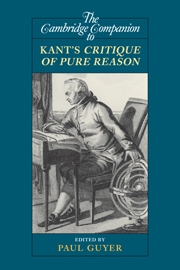
It would be relatively easy to advance criticism towards Kant on the fact that Logic as a broad discipline has actually undergone pretty heavy change since Aristotle, but that would be a mistake. The application of Logic is clearly not a complete and perfect endeavor, but as a simple body of knowledge, Logic sits in a very secure place. It is important to understand that Kant refers simply to the basic principles of Logic, not its application. It cannot be improved or changed in any way. There may be some clarification or reformulation, but the actual facts of the matter stay the same. Since Aristotle provided a clear and distinct understanding of the laws of Logic, we have not needed to backtrack or alter any specific part. Logic, for Kant, is the prime example of science.

Consider the use of the term science technical language, that does not relate to the term we use today. In this preface, Kant intends to outline exactly how various sciences have secured their path, and whether or not metaphysics thus far has succeeded in securing its own path, and if not, for what reason and whether or not it is capable of doing so in the first place. The secure path of science that Kant refers to is a path that secures any discipline a solid, ‘complete’ and unchanging set of facts. Kant’s use of the term science in the preface is more akin to its older, more literal usage meaning a body of knowledge. The central question Kant seeks to ask and answer in the preface is whether metaphysics is a science, and if not, why has it failed? Kant first begins by outlining what a science is and by what manner a discipline secures its’ status as a science.

We shall indeed be rendering a service to reason if we can possibly discover that path, even if we should have to give up as futile much that was included in the purpose which we had previously adopted without deliberation. If, after many preparations and arrangements have been made, the treatment falters as soon as it turns to its purpose or if, in order to reach that purpose, it repeatedly has to retrace its steps and enter upon a different path or, again if the various collaborators cannot be brought to agree on the manner in which their common aim is to be achieved – then we may rest assured that such an endeavor is still far from having entered upon the secure path of a science, but is a mere groping about.

Whether someone’s treatment of the cognitions pertaining to reason’s business does or does not follow the secure path of a science, this we can soon judge from the result.


 0 kommentar(er)
0 kommentar(er)
